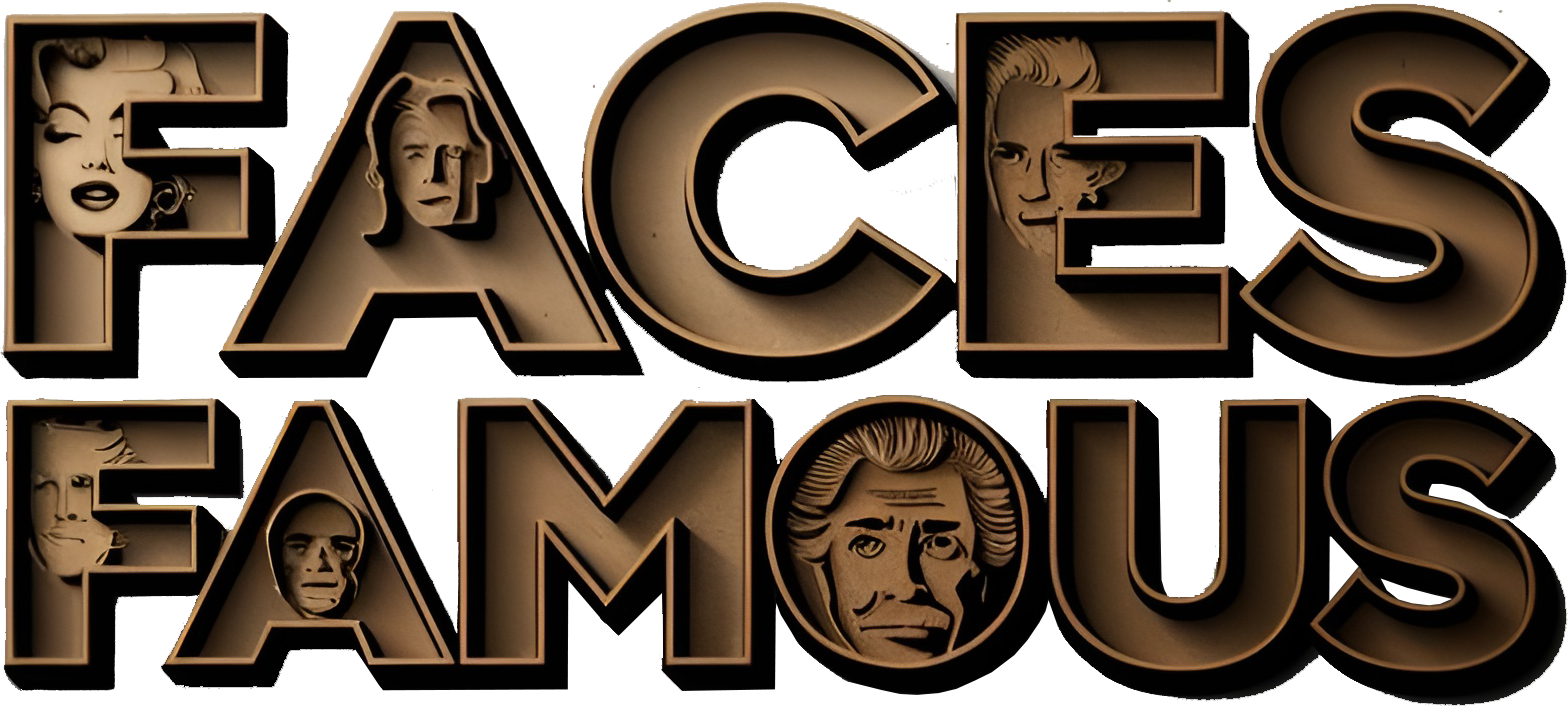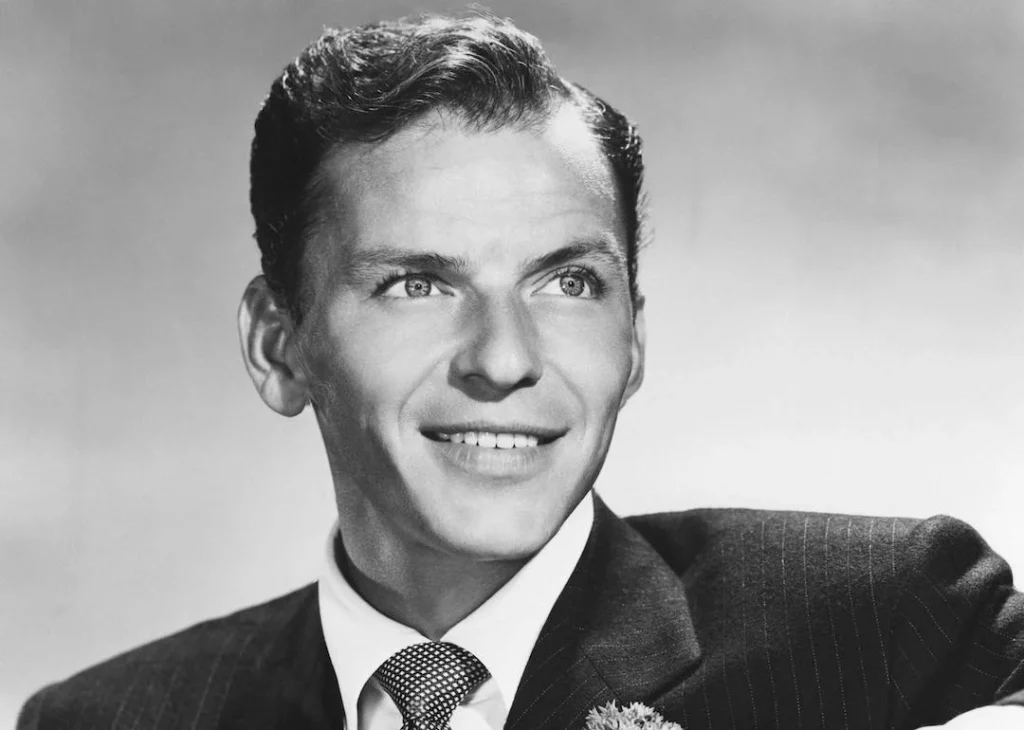Frank Sinatra, often referred to as “Ol’ Blue Eyes” or “The Chairman of the Board,” was an American singer, actor, and cultural icon. Born Francis Albert Sinatra on December 12, 1915, in Hoboken, New Jersey, Sinatra rose to fame as one of the most influential and celebrated entertainers of the 20th century. Known for his distinctive voice, charismatic stage presence, and timeless music, Sinatra’s career spanned more than five decades.
Early Life
Frank Sinatra was the only child of Italian immigrant parents. His father, Anthony Sinatra, was a firefighter, and his mother, Natalie “Dolly” Sinatra, was a politically active figure in Hoboken. As a teenager, Sinatra developed a passion for music and idolized Bing Crosby, whose singing style inspired him.
Sinatra’s journey to stardom began in the 1930s when he performed with local bands and won a talent contest. His big break came in 1939 when he joined Harry James’ orchestra, and later, in 1940, he joined the Tommy Dorsey Orchestra, where his smooth vocals began to captivate audiences nationwide.
Rise to Fame
Sinatra’s solo career took off in the early 1940s, fueled by a string of hit records like:
- “All or Nothing at All”
- “I’ll Never Smile Again”
- “Night and Day”
He quickly became a teen idol, earning the nickname “The Voice” for his ability to convey deep emotion through his singing. His popularity surged during World War II as his romantic ballads provided comfort to both soldiers and civilians.
The 1950s: The Comeback and Hollywood Success
After a career slump in the late 1940s, Sinatra staged one of the greatest comebacks in entertainment history. In 1953, he signed with Capitol Records, where he released some of his most iconic albums, including:
- “In the Wee Small Hours” (1955)
- “Songs for Swingin’ Lovers!” (1956)
- “Come Fly with Me” (1958)
These albums showcased Sinatra’s versatility, blending jazz, swing, and ballads. His work with arrangers like Nelson Riddle and Gordon Jenkins redefined the art of popular music.
During this period, Sinatra also established himself as a talented actor, winning an Academy Award for Best Supporting Actor for his role in “From Here to Eternity” (1953). Other notable films include:
- “The Man with the Golden Arm” (1955)
- “Guys and Dolls” (1955)
- “Ocean’s 11” (1960), which solidified his association with the Rat Pack, a group of entertainers including Dean Martin and Sammy Davis Jr.
The Rat Pack and Las Vegas
Sinatra became the unofficial leader of the Rat Pack, a group of entertainers who epitomized coolness and sophistication. The group performed regularly in Las Vegas, blending music, comedy, and camaraderie. Sinatra’s association with Las Vegas helped transform the city into a global entertainment capital.
Later Career
In 1961, Sinatra founded Reprise Records, allowing him greater artistic control. Albums like “September of My Years” (1965) and the hit single “Strangers in the Night” (1966) reinforced his status as a musical legend.
Though Sinatra announced his retirement in 1971, he returned in 1973 with a series of successful albums and tours. His song “New York, New York” (1980) became one of his most iconic recordings and an anthem for the city.
Personal Life
Frank Sinatra’s personal life was as colorful as his career. Known for his charm and fiery temper, he was linked romantically to numerous high-profile women, including actresses Ava Gardner, Mia Farrow, and Lauren Bacall. Sinatra was married four times, with Ava Gardner being his most famous and tumultuous relationship.
Sinatra was also known for his connections to politics and organized crime. He was a close friend of President John F. Kennedy and later supported Ronald Reagan. His rumored ties to the mafia fueled public fascination with his life.
Philanthropy and Legacy
Sinatra was a generous philanthropist, contributing to various causes, including civil rights and humanitarian efforts. He was awarded the Presidential Medal of Freedom in 1985, recognizing his contributions to American culture.
Death and Lasting Influence
Frank Sinatra passed away on May 14, 1998, at the age of 82, from a heart attack. He left behind a legacy that continues to inspire generations of musicians and entertainers. His influence can be heard in the works of artists like Tony Bennett, Michael Bublé, and Harry Connick Jr.
Achievements
- 31 gold, 9 platinum, and 3 multi-platinum albums
- 11 Grammy Awards, including a Grammy Legend Award
- An Academy Award for “From Here to Eternity”
- A star on the Hollywood Walk of Fame
- Induction into the Grammy Hall of Fame
Conclusion
Frank Sinatra was more than a singer or actor; he was a cultural phenomenon whose impact on music, film, and popular culture remains unparalleled. With his smooth voice, impeccable phrasing, and charismatic persona, Sinatra defined an era and continues to be celebrated as one of the greatest entertainers of all time.



